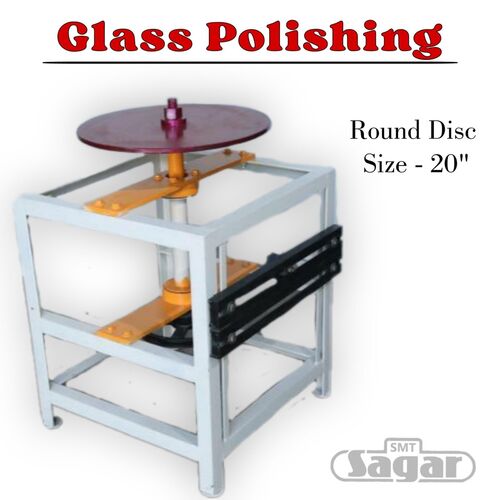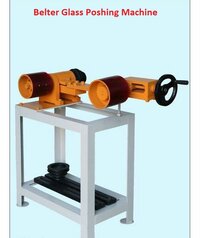Glass Polishing Machine
Product Details:
- Product Type Glass Polishing Machine
- Power Source Electricity
- Operating Type Semi Automatic
- Surface Treatment Painted
- Click to View more
Glass Polishing Machine Price And Quantity
- 14000 INR/Unit
- 1 Unit
Glass Polishing Machine Product Specifications
- Semi Automatic
- Painted
- Electricity
- Glass Polishing Machine
Glass Polishing Machine Trade Information
- Cash Advance (CA) Cash in Advance (CID)
- 50 Unit Per Month
- 1 Week
- Yes
- Sample costs shipping and taxes has to be paid by the buyer
- Asia Australia Central America North America South America Eastern Europe Western Europe Middle East Africa
- All India South India Central India West India North India East India Gujarat Karnataka Kerala Lakshadweep Mizoram Meghalaya Manipur Andhra Pradesh Bihar Chandigarh Daman and Diu Goa Jharkhand Odisha Punjab Assam Delhi Dadra and Nagar Haveli Andaman and Nicobar Islands Arunachal Pradesh Chhattisgarh Haryana Himachal Pradesh Jammu and Kashmir Madhya Pradesh Maharashtra Nagaland Rajasthan Sikkim Tamil Nadu Telangana Tripura Pondicherry Uttar Pradesh Uttarakhand West Bengal
Product Description
Glass Polishin
Belter Glass Polishing
A glass polishing machine is a specialized piece of equipment designed for polishing and finishing glass surfaces. It is commonly used in the glass manufacturing industry to achieve a smooth and polished appearance on glass products. Glass polishing machines are essential for improving the aesthetic quality of glass, removing scratches, and enhancing clarity.
Here are some key features and aspects of glass polishing machines:
Spindle System: Glass polishing machines typically have a spindle system that holds polishing wheels or belts. These polishing tools are used to buff and polish the glass surface.
Polishing Wheels or Belts: Various types of polishing wheels or belts may be used, depending on the specific requirements of the glass polishing process. These may include abrasive wheels, felt wheels, or diamond-impregnated wheels.
Water Cooling System: Glass polishing generates heat, and to prevent the glass from overheating and potentially cracking, many glass polishing machines are equipped with a water cooling system. This system helps to keep the glass and polishing tools at an optimal temperature during the polishing process.
Adjustable Settings: Glass polishing machines often have adjustable settings for controlling factors such as the pressure applied to the glass, the speed of the polishing tools, and the angle of contact. These settings allow operators to tailor the polishing process to the specific requirements of different glass products.
Automation and CNC Control: Some advanced glass polishing machines may incorporate automation features and computer numerical control (CNC) technology. This allows for precise control over the polishing process, reducing the need for manual intervention and ensuring consistent results.
Applications: Glass polishing machines are used in the production of various glass products, including architectural glass, automotive glass, glass furniture, and decorative glass items. They are employed to remove imperfections, scratches, and rough edges from glass surfaces, improving the overall quality and appearance of the glass.
Safety Features: Safety is a crucial consideration in glass polishing machines. Safety features may include emergency stop buttons, protective enclosures, and systems to manage dust and debris generated during the polishing process. Quality Control: Glass polishing machines play a role in quality control by ensuring that glass products meet specific standards for clarity, smoothness, and surface finish. It's important to note that the features and capabilities of glass polishing machines can vary depending on the specific model and manufacturer. The choice of a glass polishing machine depends on factors such as the type of glass being processed, the desired finish, and the production volume.

 English
English Spanish
Spanish French
French German
German Italian
Italian Chinese (Simplified)
Chinese (Simplified) Japanese
Japanese Korean
Korean Arabic
Arabic Portuguese
Portuguese


 Send Inquiry
Send Inquiry Send SMS
Send SMS